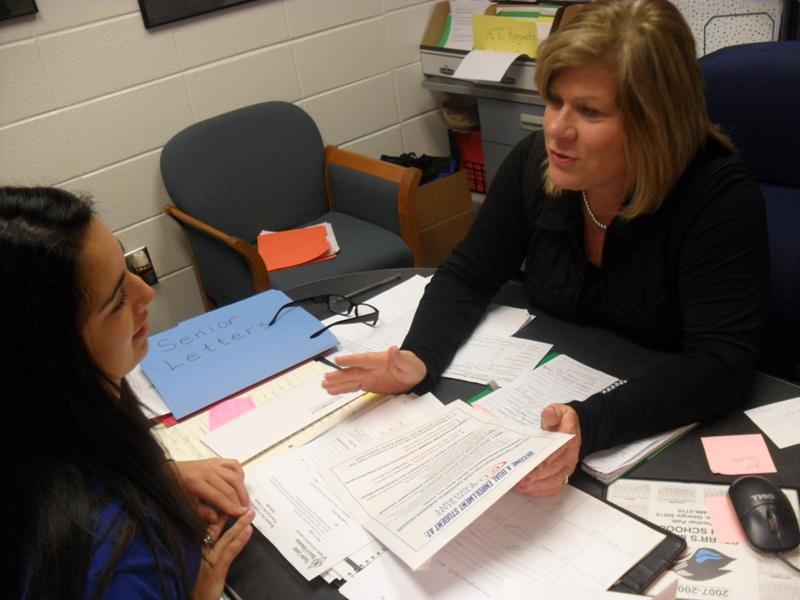Students are always looking for ways to get ahead in school whether it is Advanced Placement or Dual Enrollment classes.
During Special Programs Night in Jan., students and parents learned about the kinds of classes that can put students ahead.
Students can get ahead
The Advanced Placement program offers 17 classes. Students can earn college credits while still in high school.
Dual Enrollment allows students to take actual college classes off campus while still attending some classes in high school.
However, the main focus during Special Programs Night is the Advanced Placement classes.
Students want information
“Kids need to have [Dual Enrollment and AP] information to make those decisions,” said Lela Crowder, who teaches CP American Literature and AP Language and Composition.
“There are a lot of questions about Dual Enrollment and a lot of the students I teach are college-bound and want to know their options and which option best fits their needs.”
This year as in past years, students who wanted to explore Dual Enrollment have had to wait until after making decisions about taking Advanced Program classes and going through the process of filling out applications and submitting them to the Advanced Placement teachers.
“To me, it would make sense to have Dual Enrollment representatives at Special Programs night,” 9th grade Gifted Literature and Composition and AP Literature teacher Nancy Close said.
Junior Sue Utt said she wished the Dual Enrollment option had been discussed before students became upperclassman.
“Underclassmen should be prepared and have all the information about Advanced Placement and Dual Enrollment beforehand to make the decisions about which ones to take,” Utt said.
More students are interested
According to guidance counselor Colleen Petty, Utt’s concerns make sense, but she said Dual Enrollment is complicated and we want to make sure students are knowledgeable about the process.
Now that more students are expressing an interest in Dual Enrollment classes, Petty said the guidance counselors are looking at ways to move the dates closer together or include both in Special Programs Night.
Getting all the information
“Now that it is getting more popular, we will do it all in one day or try to get the dates as close to each other as possible,” Petty said.
Moving the dates closer together or having them both be discussed on the same night might not even be a problem for Clayton State representative Leslie Moore.
“I am happy to present a night time program – it is up to the counselors at your school,” Moore said.
HOPE changed its ways
Another factor that is making Dual Enrollment more attractive to high school students is a change in the way the HOPE Scholarship accounts for these credits.
The HOPE Scholarship only pays for 127 college hours. Dual Enrollment used to count toward those hours making students less interested in taking it, but since Dual Enrollment hours no longer count toward that 127, students are becoming more interested, Petty said.
“They are both great programs if you want to challenge yourself and have the work ethic that is required for taking a college-level class,” she said.


